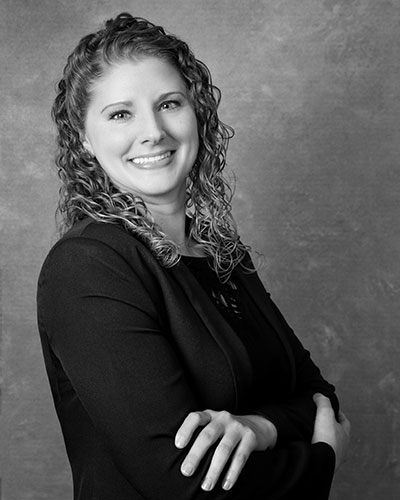
Heroux & Company, LLP
Certified Public Accountants“Every client counts!” ~ John Heroux, CPA, Founder
Awarded Green Plus sustainable business certification in 2010
Our Services
Offering various traditional CPA services, Heroux & Company, LLP works with individuals, small businesses, and nonprofit organizations. The majority of our work involves tax preparation, planning and strategies. Our experience and understanding, including that of tax law and the ever-changing regulatory requirements, helps us guide clients, whether in managing profitability and growth, capital, or tax reduction and tax compliance requirements. We care about the needs of both the individual and business owner, with the goal to lead both in achieving full growth potential. We are committed to offering exceptional client services that include:
✔ Corporate, partnership, individual, estate and trust tax preparation and planning
✔ Payroll and financial statement preparation, including compilation, review, and audit
✔ Accounting system consultation, analysis and advisory services, including QuickBooks™
✔ Strategic and sustainable individual and corporate planning and profitability analysis
✔ Other advisory and management support and assurance
We Are
A Raleigh-based firm in North Carolina that provides honest and accurate tax advice, up-to- date objective advisory information and real-time availability. Managing partner and founder John Heroux, established Heroux & Company, LLP in 1998, and expanded it to an employee-owned company in 2007. Guided by a wellness and philanthropic philosophy, John leads the company’s performance driven culture, while fostering teamwork, community involvement, and long-term client relationships. Professional affiliations include the North Carolina Association of Certified Public Accountants (NCACPA) and American Institute of Certified Public Accountants (AICPA).
Our Mission
To remain a leading local tax authority through professionalism, experience and ability to focus on the individual and business needs of a client 365 days of the year! Fostering positive client and employee relations drives our success in making every client count. Our relevancy goes beyond a tax return, encompassing the well-being of our employees, clients and the community in which we serve.
Testimonials
Staff
blank
Biography
John moved from the Midwest to Raleigh, NC with his young family, starting his early career in private accounting at the Golden Corral Corporate Office in 1987. He joined a small public CPA firm in 1992 that helped teach him the fundamentals of public accounting and business, shaping the foundation of a partnership and the building of his own firm, Hutzenbuhler & Heroux in 1998.
John’s attention to making every client count has been the main focus throughout his successful growth. In 2006, John became managing partner of the firm, changing the name to Heroux & Company, LLP and changing the business dynamics by allowing employees to have small ownership in continuing the sustainability of the business. He also believes in making positive internal changes that reflect a healthy work environment, incorporating paid employee work-out time and personal weekly training each (even through tax season!) and additional health insurance benefits.
John’s family (wife Regina, daughter Jena, and son Jacob) are his driving force. He enjoys beach excursions with his family whenever he has free time. He also loves golf, basketball and football and is especially proud of being a Green Bay Packer fan! He is an active member of St. Catherine’s of Siena Church. If you ask John what he aspires to do as he grows older, he openly admits that he NEVER wants to retire and that he fully appreciates the blessings he has been given. He might also admit that the one opportunity he still waits patiently for is a better golf handicap!

blank
Biography
Tom joined Heroux & Company, LLP in October 2004 as a tax and accounting manager and became a partner in January 2007. He is a Greenville, NC native and a graduate of East Carolina University, with bachelor and master degrees in accounting in addition to a concentration in taxation.
Tom’s goals and job satisfaction lie in helping individuals understand and address often complicated tax situations, as well as helping business owners insightfully see their financial operations to plan, identify, protect, and enhance successful operations.
Tom’s twenty plus years of experience includes individual, corporate, and partnership tax; tax planning; financial auditing and accounting for business entities; nonprofit entities; multi-state sales and payroll taxes; as well as QuickBooks.
Tom currently chairs the board of Highland United Methodist Church Children’s Center as well as serving on the finance committee of the church. Tom is also proud to have the opportunity to serve on the State of North Carolina’s Debt Affordability Advisory Committee since 2015.
Tom is an avid tennis player. He also enjoys spending time in his woodworking shop. He and his wife Jennifer are blessed to have a son, Luke.


FAQs
Closed Toggle Trick
What documents and information are needed to prepare my taxes?
Individuals
Prior year returns, tax information forms (i.e. W-2s, 1099s, 1098, K-1s, brokerage tax summaries with basis information, etc) summary of deductions (business deductions, charitable contributions, real estate and personal property taxes, job expenses, medical expenses, etc). A tax organizer, usually mailed to you in January, is also useful in our preparation. If you have not received an organizer, please contact our office.
Businesses
A majority of businesses use QuickBooks (or other software) to organize and report on the operation’s financial activity. If you use this type of software, we strongly encourage you to reconcile all banks, credit card and other financial accounts and review financial reports prior to sending backup files. If you do not use packaged accounting software, we ask you to summarize your activity as carefully as possible, whether on a spreadsheet or a simple list, and provide us with monthly bank statements. We may be able to provide you with a format of listing revenues and expenses if your operations are relatively simple. We will also need to maintain a “permanent file” for your business that may include documents such as: the operating agreement, bylaws, approval of S-status, loan documents and amortization schedules, IRS correspondence, asset listings with depreciation accumulated.
What are your drop-off deadlines? How long will it take to finish?
What can I deduct?
In regards to businesses, the tax code in section 162 provides “ordinary and necessary expenses” are allowed as deductions. But the tax code is thousands and thousands of pages long, so please contact us for application of specific situations. The best approach for you is to be as organized and accurate as possible in accumulating financial information and to contact us if there are any questions or concerns as to a deduction prior to the expenditure.
How can I benefit from current changes in the tax law?
Can you file my tax return electronically? How do I get my refund or pay tax due if I file electronically?
Can I pay my taxes electronically?
How can I check the status of my refund?
What are the due dates for individual, business, payroll and other tax returns?
Individual Returns: April 15th (if extended, October 15th)
Partnership Returns: March 15th (if extended, September 15th)
Corporations and S-Corporations: March 15th { if extended, September 15th }
County Business Property listings: January 31st (if extended online in Wake County, May 31st, otherwise, April 15th)
Payroll reports
Form 941, NC-5Q and NCUI-101: April 30th, July 31st, October 31st, January 31st
Form 940 and Form 944: January 31st
Form NC-5: due either monthly or quarterly
Forms W-2: submitted to employees by January 31st
Form W-3 + submit to the Social Security Administration by January 31st
* Please be aware of your filing requirements for payroll whether monthly, quarterly or semi-weekly.
Forms 1099 and 1096: sent to individuals by January 31st; filed with the IRS using Form 1096 by January 31st
What are the consequences of paying or filing late?
You may choose to enter into an installment agreement with the IRS. The IRS charges a one-time fee of $105 for this service, but it is reduced to $52 if you sign up to have the IRS process your payments electronically. Interest and late payment penalties will continue to accrue. The IRS will generally negotiate to a fair monthly payment such that past taxes are paid in full in a fair amount of time.
Interest rates charged by the IRS fluctuate quarter by quarter.
Some of the more common interest and penalties include:
Individuals
The late filing penalty is usually 5% of the amount due for each month or part of month the tax return is filed after the due date or extended due date of the tax return. The maximum amount of this penalty is 25%. The late payment penalty is ½ of 1% of the amount due for each month or part of month the unpaid tax is paid after the original due date of the tax return. Interest is currently 4%; The maximum amount of this penalty is 25%. North Carolina assesses late filing penalties of 5% of unpaid tax per month, maximum of 25%; a late payment penalty of 10%; and interest at their stated rate, which is currently around 5%.
S-Corps
Beginning in 2010, late filing is $205 for each month or part of a month for each shareholder (up to 12 months.)The North Carolina Department of Revenue charges penalties also, but they are generally based on tax owed.
Partnerships
Beginning in 2010, late filing is $205 for each month or part of a month for each partner (up to 12 months.) The North Carolina Department of Revenue charges penalties also, but they are generally based on tax owed.
Payroll
IRS Deposit penalties for 941 and 944 payroll taxes are based on the amount of the tax deposit. For a deposit 1-5 days late, 2%; 6-15 days 5%; 16 or more days, 10%; more than 10 days after a notice date, 15%; deposited not using EFTPS when required 10%.
IRS late filing penalties for Forms 941 and 944 include a late filing penalty of 5% of the amount due for each month or part of month the unpaid tax is paid after the original due date of the tax return. The maximum amount of the late filing penalty is 25%. Also, for each whole or part month that the tax is paid late, there is a failure-to-pay penalty of 0.5% per month of the amount of tax, with a maximum of 25%.
NC withholding: There is a 10% penalty for late payment of the tax due. There is also a penalty of 5% per month (max 25%) for failure to file the report when due.
NC Unemployment: The Division of Employment Security charges a late filing penalty of 5% of the amount of tax due per month, or portion thereof, to a maximum of 25%. A late payment penalty is 10% of the amount of tax due. Interest is currently charged at an annual rate of around 5%.
Sales Tax
Sales tax in North Carolina: If tax is due, both a failure to file penalty of 5% per month or fraction thereof with a maximum of 25% (minimum $5.00 State and $5.00 county) and a failure to pay penalty of 10% (minimum $5.00 State and $5.00 county) will be due. Interest is due on the amount of tax due from the date the tax was due until it is paid.
What do I do if I receive a Tax Notice?
How long do I need to keep my records?
I am doing my own payroll and need to furnish forms to my employees. How do I determine withholding?
Do you accept credit cards?
How do I request a copy of my prior tax returns?
Include specific contents of the letter needed and she will generate on your behalf in a timely manner. We cannot send information to a third party, such as a bank or mortgage broker, without written consent from the client.
Contact Us
4700 Falls of Neuse Road, Suite 110
Raleigh, NC 27609
Tel + 919 788 9570
Fax + 919 788 9571
info@hcocpa.com
Please note that you will need your invoice number to complete your payment.



